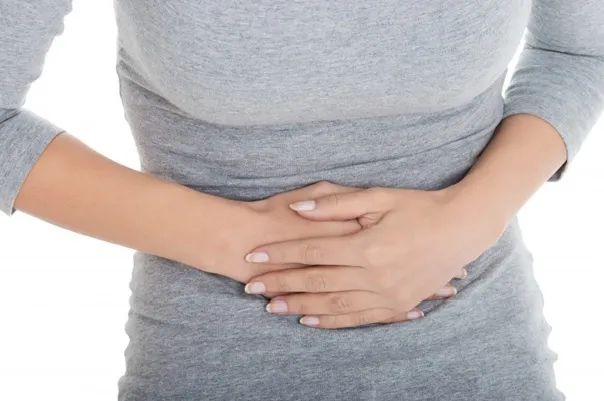Uterine fibroid’s are noncancerous growths that typically appear in women of childbearing age, usually between 35 and 40.
If you have heavy, painful periods that last more than a week, have difficulties conceiving, or have a close female relative with uterine fibroid’s, in that case, you should get yourself checked as soon as possible. However, because many women with fibroid’s have no symptoms, it can be difficult to tell when to visit the doctor.
Dr. Shweta Shah, a gynecologist in Malad, Mumbai, has over ten years of experience treating a wide range of gynecologic diseases, including diagnosing and treating uterine fibroid’s.
You should schedule a consultation with her if you are experiencing symptoms or feel that you could be at risk.
What are uterine fibroid’s?
Uterine fibroid’s, also known as leiomyomas, are noncancerous growths that occur inside your uterus. They’re benign, meaning they won’t turn into cancer or put you at an elevated risk of uterine cancer.
While no one knows for sure what causes uterine fibroid’s to form, doctors believe hormone imbalances, hereditary, and growth factors all play a role. We do know that you are more likely to develop fibroid’s if:
- You have vitamin D deficiency
- Are overweight
- Your mother or sister suffers from it
- Got your periods at an early age
- You do not have children
Fibroid’s can range in size and shape, from a small, barely visible growth to a bulky mass that can distort and enlarge your uterus. It’s relatively common for more than one fibroid to develop inside your uterus, yet, you may be completely unaware of their presence unless your doctor discovers them during a routine pelvic exam.
It is usual for uterine fibroid’s to grow over time. Still, most women don’t notice any symptoms, and the hormonal changes brought on by menopause often lead the fibroid’s to shrink or disappear.
What are the symptoms of uterine fibroid’s?
Symptoms don’t show until a fibroid has grown large enough or there are enough of them to deform the curvature of your uterus, putting pressure on your abdomen. The following are some of the most common uterine fibroid’s symptoms:
- Heavy menstrual bleeding
- More than a week-long period
- Anemia
- Pelvic pain and pressure
- Low back pain
- Frequent need to urinate
- Chronic vaginal discharge
- Constipation
- Inability to empty your bladder
- Bleeding between periods
- Pain during sex
How are uterine fibroid’s diagnosed?
If any of these symptoms persist, worsen, or your periods are typically heavy and extended, you should consult Dr. Shweta Shah, a female gynecologist in Malad, Mumbai.
She will perform an internal pelvic exam to detect the fibroid. A pelvic ultrasound examination will confirm the diagnosis. Occasionally, fibroid’s are discovered by chance when an ultrasound is performed for another reason or during surgery. Other tests, such as hysteroscopy, MRI, CT scan, laparoscopy, or hysterosonogram, may be recommended by her depending on your specific situation.
What are the treatments for uterine fibroid’s?
Treatment for uterine fibroid’s varies depending on their size, quantity, and location, as well as the symptoms they cause.
Depending on the size and symptoms of your fibroid, Dr. Shweta Shah, one of the best gynecologist in Malad, Mumbai, may recommend periodic pelvic exams and ultrasounds.
Treatment is normally required if you have symptoms from your fibroid’s, such as infertility issues, anemia, severe pain, or bowel and urinary tract problems.
Your optimum treatment option will also be determined by your long-term fertility goals. Some treatment choices may not be suitable if you wish to have children in the future.
When considering treatment choices, discuss with Dr. Shweta Shah, a competent obstetrician in Malad, Mumbai, your views on fertility and your long-term aspirations.
She can treat uterine fibroid’s in a variety of ways, including:
- Medications
- Birth control
- Iron supplements
- Gonadotropin-releasing hormone
- Oral therapies
If the above treatments fail to provide relief, the doctor may suggest surgery. Surgical options include:
- Myomectomy
- Hysteroscopy
- Laparoscopy
- Laparotomy
If you do not want children in the future, then there are more surgical options that are very effective, such as:
- Hysterectomy
- Uterine fibroid embolization
- Radiofrequency ablation
Being a highly experienced laparoscopic surgeon in Malad, Mumbai, Dr. Shweta Shah has performed hundreds of laparoscopic myomectomy and laparoscopic hysterectomies for effectively treating uterine fibroid’s.
Schedule your consultation with Dr. Shweta Shah, a leading gynecologist doctor in Malad, Mumbai, for safe and comprehensive fibroid treatment.

